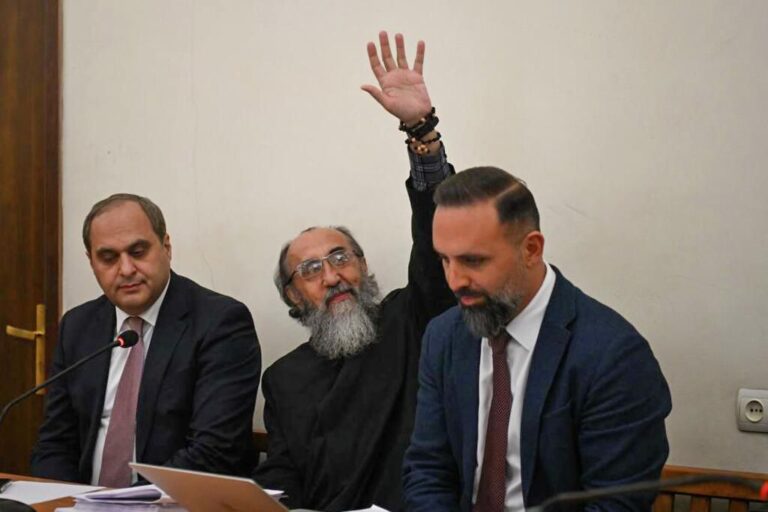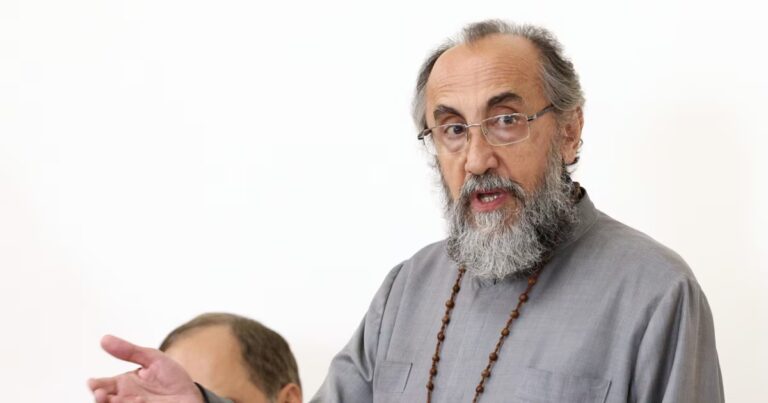UN peacekeepers for Armenia will repeat the fate of Scandinavian peacekeepers for Artsakh
October 11 2024, 12:05
While the members of the Civil Contract Party are engaged in an “intraspecific competition” and cannot choose a new minister of justice, Azerbaijan is “expanding the front of the information attack” on Armenia.
1. If we analyze the statements of the Azerbaijani defense ministry over the past few months regarding the topic that the Armenian side allegedly fired at Azerbaijani positions, we can see that Baku is trying to designate a section of the Armenian border with Nakhichevan as a “zone of instability on the Armenian-Azerbaijani line of contact.”
You do not need to be a military expert or an employee of Pashinyan’s beloved Rasmussen Global consulting company to understand that it is in this direction that Ilham Aliyev is preparing one of the important military strikes.
2. Another “point of information attack” of Azerbaijan on Armenia is the military component of cooperation between Yerevan and the EU.
Aliyev, like Pashinyan, buys weapons and ammunition, including from EU member states, but he does not introduce European observers to the region, which makes it possible to neutralize the potential negative reaction to the military component of Azerbaijan’s cooperation with the West from the main regional players such as Russia, Iran and Turkey.
Moreover, if earlier statements against observers were limited to the administration of the Azerbaijani president as well as the Foreign Ministry, now the head of the Azerbaijani General Staff has also entered the game. Again, we note that you do not need to be a military expert or an employee of Pashinyan’s beloved Rasmussen Global to understand that at some point Baku may interpret the actions of observers as a threat to Azerbaijan’s security, and because of this, it may start hostilities, knowing well that the observers will simply leave Armenia. They will leave us alone with our problems.
At the same time, Baku’s tactics towards Armenia, regarding the choice of the moment to strike the country, are also clear: amid Russia’s lack of trust in the Armenian authorities, lack of transparency in relations between Yerevan and Moscow, and reduction of its military presence in Armenia, Azerbaijan can wait for the moment when Armenian-Russian relations will reach their lowest point, and it is then that it will try to resolve some of its issues related to Armenian statehood through military aggression.
One can ask a logical question here: don’t the Armenian authorities understand all this? Don’t the government and the “elite group” that currently governs Armenia understand this? Apparently, they understand everything perfectly well. And if our version is correct, we can conclude that the Armenian authorities are doing this, among other things, for Western countries to send their so-called peacekeepers to Transcaucasia to resolve the conflict between Armenia and Azerbaijan. This was stated last week by the head of the Russian FSB, Alexander Bortnikov.
Moreover, with the topic of the deployment of Western peacekeepers to Armenia, we should pay attention to the US Embassy’s reaction to Bortnikov’s statement. Instead of an essential answer to the question about the potential deployment of peacekeepers, the embassy stated that its support is aimed at helping countries respond to the demands of their citizens, to have accountable, democratic leaders working to strengthen peace, stability, and well-being. Apparently, Washington believes that the Armenian citizens should not even be informed about what will happen to Armenia.
Time will tell whether there will be peacekeepers in Armenia or not. Moreover, the 44-day war has more than clearly demonstrated who has the military, political, and, most importantly, logistical resources to introduce peacekeepers. Therefore, it would not be surprising if the idea of “NATO or UN peacekeepers” would have the same fate as the idea of bringing “Scandinavian peacekeepers” to Karabakh.
Think about it…








